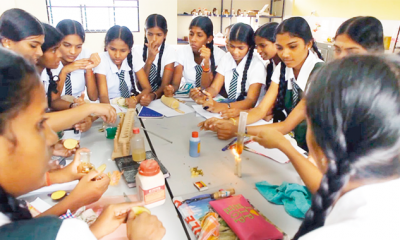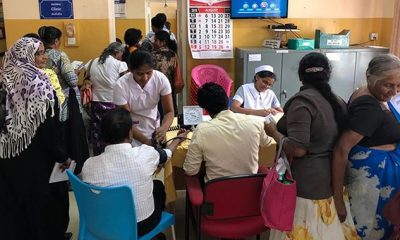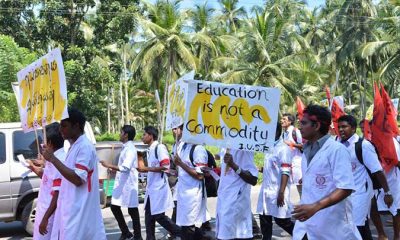Business
Queen Margaret University UK and ICBS announce strategic partnership

To provide world class education to Sri Lankan students
Queen Margaret University (QMU) and Imperial College of Business Studies (ICBS) announced the launch of a groundbreaking partnership between the two institutions, aimed at providing world class education to our Sri Lankan students in pursuing their Degree and Master’s qualifications in multiple trending disciplines. The ceremony took place at the Kingsbury Hotel on the 19th of July 2023, with an esteemed gathering of high-level delegates, corporate leaders, and education sector officials. Her Excellency Lisa Whanstall, Acting British High Commissioner to Sri Lanka, graced the event as the Chief Guest.
By combining QMU’s expertise in transnational education with specialised programmes in Business and Management studies, along with related research, with ICBS’s renowned expertise as a robust business school in Sri Lanka, offering innovative syllabus mapping and practical teaching with a focus on career-driven outcomes, Sri Lankan students will receive an enriched and interdisciplinary approach to high-quality, practical education.
Through the QMU and ICBS partnership, students will benefit from access to a diverse range of prestigious degrees. Undergraduate students can pursue BSc (Hons) Business Management, Specialised degrees in Human Resource Management, Marketing Management, and International Business Management. Postgraduate students can select from MBA General, MBA in Human Resource Management, MBA in Business Analytics, and MSc Strategic Marketing. These degrees cover multiple trending disciplines and provide students with high-quality education, cutting-edge learning facilities, and industry connections, providing them with a comprehensive skill set and a competitive edge in the job market.
Imperial College, with its strong panel of lecturers comprising multidisciplinary high-level academics, industry leaders, and experts, aims to commence the intake of these programs at their campuses in Colombo and Kandy in September 2023. Students after Advanced Level Exam, or any other Diploma or equivalent level qualifications in either professional or academic disciplines can seek enrolment for the BSc (Hons) Special degrees which are well designed to cater to the demands of working professionals.
Postgraduate and Masters programmes will attract the interest of Executives and Managers who aspire a faster growth in their career. With a suitable academic background in their respective disciplines, they are eligible to apply for the MBA or MSc programmes.
Imperial College, together with QMU, invites prospective students and candidates to join their programmes and experience the learning journey of a lifetime, aiming towards vibrant career opportunities both locally and globally! Selective scholarship schemes are on offer and interested students can visit the official website www.icbsgroup.com or contact them on 0773 918777 / 0114 515 253 for the Colombo Campus, or 0814 950 950 for the Kandy Campus for further details.
Business
JICA and JFTC support Sri Lanka’s drive for economic growth through a fair and competitive market
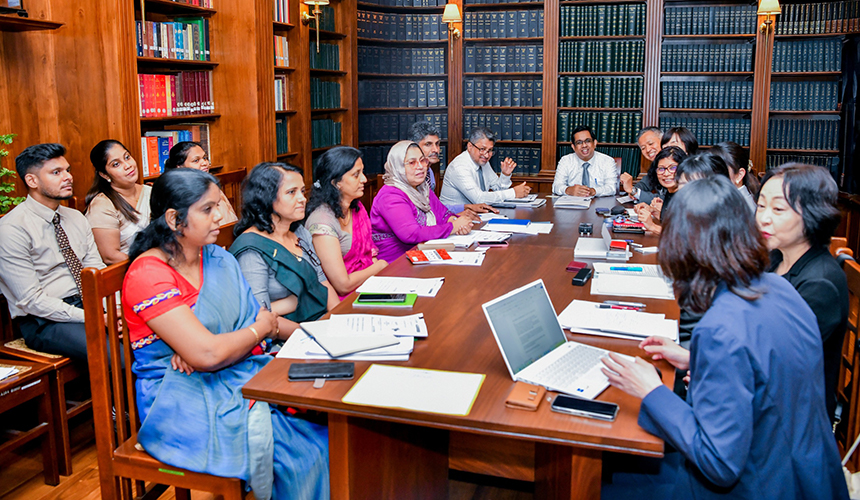
The Japan International Cooperation Agency (JICA) and the Japan Fair Trade Commission (JFTC) have expressed their support for policy reforms and institutional enhancements aimed at ensuring the supply of high-quality goods and services in Sri Lanka while safeguarding both consumers and producers.
This was discussed at a meeting held on Wednesday (12) at the Presidential Secretariat between representatives of these organisations and the Secretary to the President, Dr. Nandika Sanath Kumanayake.
During the discussion, the representatives emphasized that establishing fairness in trade would protect both consumers and producers while fostering a competitive market in the country. They also emphasized how Japan’s competitive trade policies contributed to its economic progress, explaining that such policies not only help to protect consumer rights but also stimulate innovation.
The secretary to the president noted that this year’s budget has placed special emphasis on the required policy adjustments to promote fair trade while elevating Sri Lanka’s market to a higher level. He also briefed the representatives on these planned reforms.
The meeting was attended by Senior Additional Secretary to the President, Russell Aponsu, JICA representatives Tetsuya Yamada, Arisa Inada, Yuri Horrita, and Namal Ralapanawa; and JFTC representatives Y. Sakuma, Y. Asahina, Y. Fukushima, and M. Takeuchi.
[PMD]
Business
World seen to be at crucial juncture as competition mounts for strategic resources
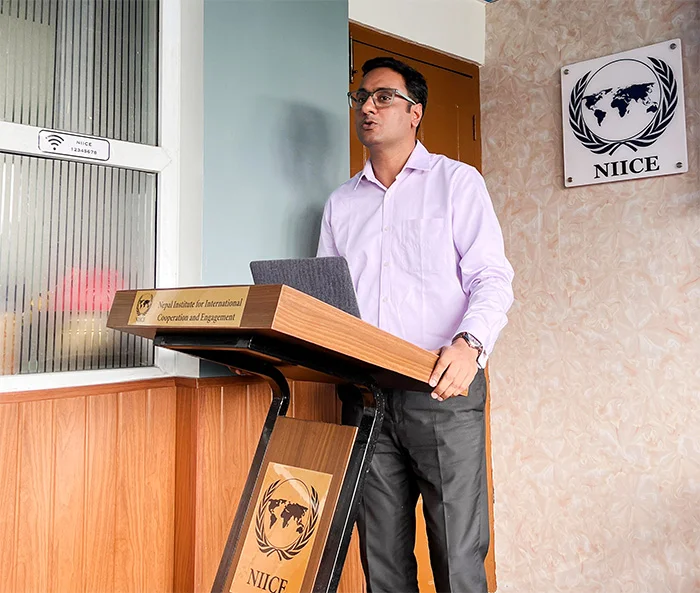
By Ifham Nizam
The intersection of climate change, energy security and global politics has never been more crucial, with geopolitical conflicts increasingly driven by competition over fossil fuels and critical minerals. Mayank Aggarwal, an energy and climate expert from The Reporters’ Collective, highlights this in his work, ‘Geopolitical Energy Chessboard’.
“Climate change and energy security are two of the most pressing global challenges, Aggarwal explains. “Urgent climate action is needed to mitigate its impact, but reducing fossil fuel use and transitioning to cleaner energy is a politically charged issue, he told The Island Financial Review.
His research highlights the complex web of energy politics, particularly in South Asia, where one in four people on earth reside. “South Asia is a major importer of fossil fuels and its energy security is critical. But the region also lacks a comprehensive dialogue framework to address climate and energy challenges collectively, he notes.
Aggarwal emphasizes that energy conflicts are not just national concerns but extend to the global stage. “From Libya and Iraq to Ukraine and Venezuela, conflicts over oil, gas, coal and critical minerals are shaping international relations. These disputes threaten economic stability and development goals worldwide.”
Despite the urgent need for a clean energy transition, political and economic interests delay global cooperation. “Countries are pulling out of climate agreements, favoring bilateral deals that often sideline developing nations. While global clean energy transition is essential, the geopolitical hurdles remain significant, Aggarwal warns.
He calls for a “Just Energy Transition” that ensures energy security and independence while engaging communities in decision-making. “We need regional cooperation, transparent negotiations for resource-rich areas and strong political will to drive climate and energy discussions at all levels, he concludes.
As the world grapples with escalating climate disasters and energy crises, Aggarwal’s insights highlight the urgent need for a balanced, just, and cooperative approach to energy politics.
Business
SEC Sri Lanka engages in interactive knowledge-sharing forum with University of Ruhuna
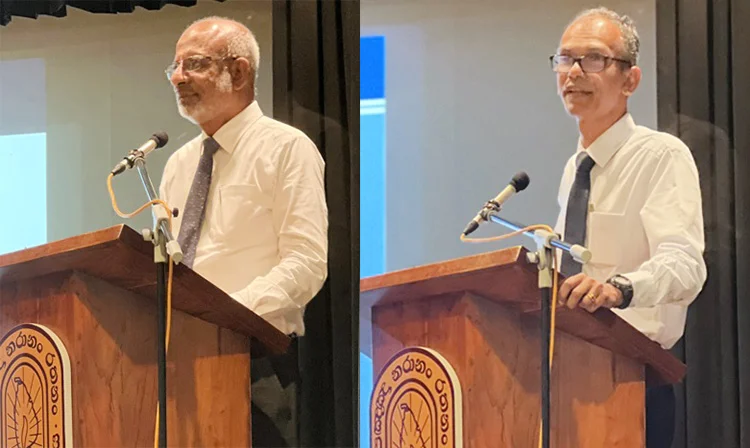
The Securities and Exchange Commission (SEC) of Sri Lanka recently participated in the Capital Market Forum 2025, organized by the Department of Accountancy and the Department of Finance of the Faculty of Management and Finance at the University of Ruhuna, in collaboration with the Colombo Stock Exchange (CSE). This interactive knowledge-sharing forum aims to enhance financial literacy and promote capital market participation among undergraduates and academics.
A key highlight of the forum was the workshop on “Nurturing Future Investors: The Role of Capital Markets in Personal and Economic Growth,” which featured distinguished speakers, including Senior Professor Hareendra Dissabandara, Chairman of the SEC, and Tushara Jayaratne, Deputy Director General of the SEC.
Senior Professor Hareendra Dissabandara delivered a compelling lecture on the crucial role of capital markets in fostering economic development. He emphasized how capital markets facilitate efficient capital allocation and contribute to long-term economic stability. A key focus of his discussion was the significance of capital formation as a sustainable alternative to debt financing for government projects. He illustrated this by comparing the market capitalization of a leading Sri Lankan company with the costs of several major government initiatives.
Professor Dissabandara highlighted the historical reliance on borrowing for infrastructure development in Sri Lanka, leading to fiscal imbalances, high-interest burdens, and economic vulnerabilities. He underscored the importance of equity financing in business sustainability, emphasizing that an efficient financial market channels surplus funds from households, institutions, and foreign investors into businesses and government projects. He explained that for over 70 years, successive governments have relied on borrowing to fund infrastructure and development, causing fiscal imbalances, rising interest burdens, high taxation, and economic vulnerabilities. He also noted that corporate professionals often overlook the importance of equity financing for sustainable growth.
-

 News5 days ago
News5 days agoPrivate tuition, etc., for O/L students suspended until the end of exam
-
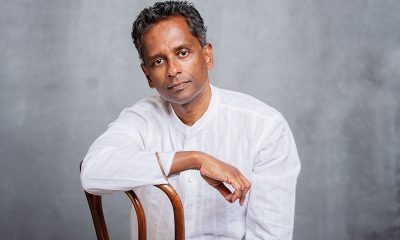
 Features6 days ago
Features6 days agoShyam Selvadurai and his exploration of Yasodhara’s story
-

 Editorial4 days ago
Editorial4 days agoRanil roasted in London
-

 Latest News5 days ago
Latest News5 days agoS. Thomas’ beat Royal by five wickets in the 146th Battle of the Blues
-
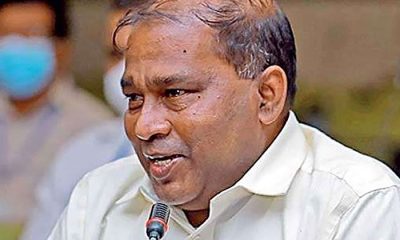
 News5 days ago
News5 days agoTeachers’ union calls for action against late-night WhatsApp homework
-

 Editorial6 days ago
Editorial6 days agoHeroes and villains
-

 Features4 days ago
Features4 days agoThe JVP insurrection of 1971 as I saw it as GA Ampara
-

 Opinion3 days ago
Opinion3 days agoInsulting SL armed forces


